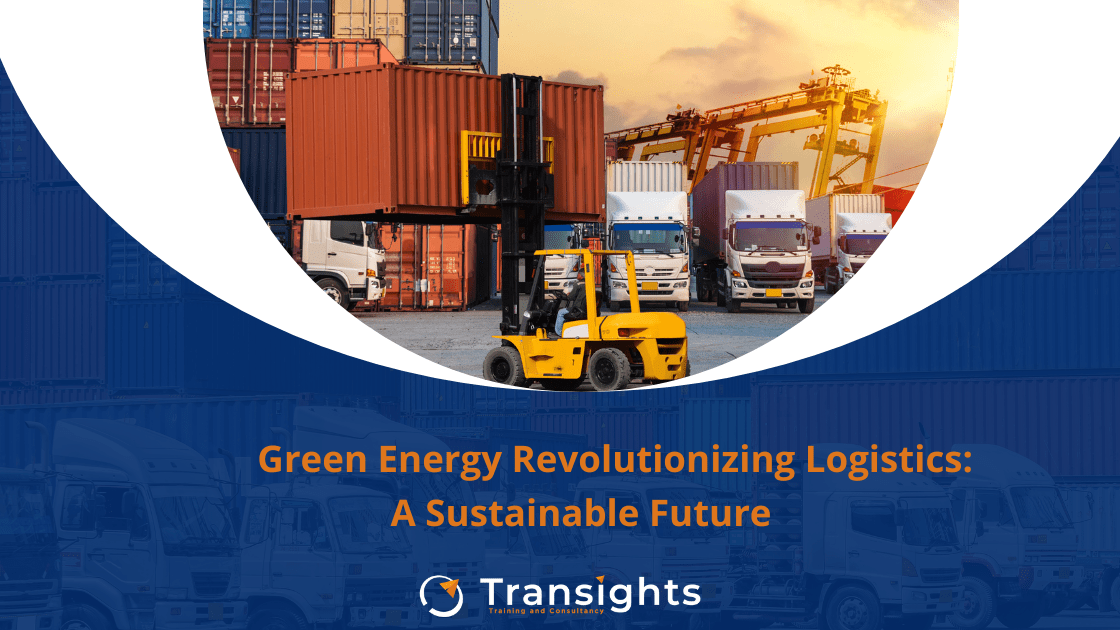
The logistics industry, a backbone of global trade and commerce, is undergoing a transformation fueled by the urgency of environmental sustainability. With a growing emphasis on reducing carbon footprints and mitigating climate change, the integration of green energy solutions in logistics has emerged as a crucial imperative. This article explores the significant strides being made in adopting renewable energy sources, sustainable practices, and innovative technologies within the logistics sector.
Electric Vehicles (EVs) and Sustainable Fleets:
Electric Vehicles (EVs) and Sustainable Fleets:
Traditional transportation methods heavily rely on fossil fuels, contributing significantly to greenhouse gas emissions. The logistics industry is increasingly embracing electric vehicles (EVs) as a cleaner and more sustainable alternative. Companies are investing in electric trucks, vans, and even bicycles for urban deliveries. The adoption of sustainable fleets not only reduces carbon emissions but also lowers operational costs over the long term.
Solar-Powered Warehouses and Distribution Centers:
Solar-Powered Warehouses and Distribution Centers:
Warehouses and distribution centers, integral parts of the logistics ecosystem, are implementing solar energy solutions to power their operations. By installing solar panels on rooftops and unused spaces, these facilities harness the sun's energy to meet electricity needs. This not only reduces reliance on non-renewable energy sources but also results in cost savings, making solar-powered logistics hubs an economically viable and environmentally friendly solution.
Innovations in Last-Mile Delivery:
Innovations in Last-Mile Delivery:
Last-mile delivery poses unique challenges, including congestion, increased emissions, and inefficient routing. Logistics companies are exploring innovative solutions such as electric delivery vehicles, drones, and autonomous robots to optimize last-mile logistics. Electric drones and robots, in particular, are powered by rechargeable batteries, reducing the carbon footprint associated with traditional delivery methods.
Energy-Efficient Technologies in Supply Chain Management:
Energy-Efficient Technologies in Supply Chain Management:
Beyond transportation, supply chain management is incorporating energy-efficient technologies to minimize environmental impact. IoT (Internet of Things) devices and sensors are being used to optimize inventory management, reduce wastage, and enhance overall efficiency. Real-time data analytics help organizations identify areas for improvement, leading to more sustainable and streamlined supply chain operations.
Green Infrastructure and Sustainable Packaging:
Green Infrastructure and Sustainable Packaging:
Logistics companies are investing in green infrastructure and adopting sustainable packaging practices to further reduce their environmental impact. Green infrastructure includes energy-efficient buildings, eco-friendly storage solutions, and the use of recycled materials in construction. Sustainable packaging, such as biodegradable materials and minimized packaging waste, contributes to a more circular and environmentally conscious logistics model.
Collaborative Initiatives and Industry Standards:
Collaborative Initiatives and Industry Standards:
The green energy revolution in logistics is not confined to individual companies; collaborative initiatives and industry standards are gaining traction. Organizations are partnering to share best practices, research, and innovations in sustainability. Governments and industry associations are also playing a crucial role in setting and enforcing standards that encourage the adoption of green energy practices across the logistics sector.
Conclusion:
The integration of green energy solutions in logistics marks a significant step toward a more sustainable and eco-friendly future. As the global community grapples with the challenges of climate change, the logistics industry's commitment to reducing its environmental impact is commendable. By embracing electric vehicles, solar-powered infrastructure, innovative last-mile delivery solutions, and sustainable practices in supply chain management, the logistics sector is actively contributing to a greener and more sustainable global economy. The ongoing evolution toward a green logistics ecosystem not only aligns with environmental stewardship but also represents a strategic investment in the longevity and resilience of the industry.

